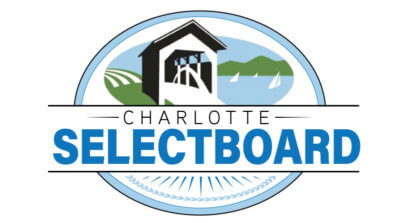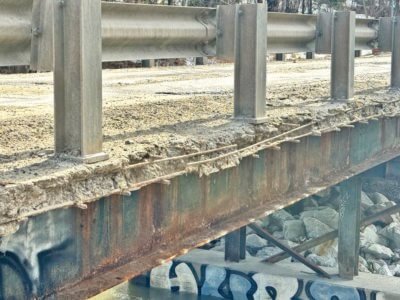Planning commission to receive outside help
The consulting firm DuBois & King will be arriving in town this fall to begin a nearly two-year process of re-envisioning Charlotte’s historic village centers.
The Chittenden County Regional Planning Commission will play a supervisory role, having won a $75,000 grant to fund the project, which will also make use of a $15,000 “bylaw modernization grant” that Charlotte received earlier this year.
Town planner Larry Lewack drafted the request for proposals that led the Chittenden County Regional Planning Commission to hire DuBois & King, which will work in conjunction with the Charlotte Planning Commission, starting with a meeting this Thursday, Oct. 5, at 7 p.m.
According to Lewack, the consultants will provide “public engagement and support to understand if people in town really want what they said they wanted in the 2018 town plan, which was to direct our resources and create a regulatory framework that was more friendly to diverse development options” in East Charlotte and West Charlotte.
Lewack recalled that, two years ago, “by substantial margins,” local voters rejected a pair of articles that the planning commission had placed on the November ballot with the goal of enabling denser development in the heart of East Charlotte.
“And so, we realized that if we were going to bring forward anything like that in the future,” Lewack continued, “we really needed to take a couple of steps back and have a much deeper consultation and engagement with town residents about what they really want to see in our two historic village centers.”
Lewack acknowledged two existing planning studies for East Charlotte and West Charlotte from 2010 and 2002, respectively. But this time, he hopes to “involve a whole lot of folks in the community who typically don’t come to town hall” but may “have an interest in these issues and have something to contribute.”
DuBois & King will, in Lewack’s words, “coalesce that information to sort of summarize it and present it in a variety of different forms” before identifying potential changes to the zoning bylaws that would “facilitate the vision that people said that they wanted.” If all goes to plan, the consultants will subsequently help “educate voters” before Town Meeting Day in 2025.
While planners will consider the question of bringing water and sewer systems to Charlotte, it won’t be “the first conversation we want to have,” planning commission chair Charlie Pughe said. “We need to figure out what we want to do with the villages and then figure out what the next pieces are.”
Charlotte officials intend to rewrite the town plan in 2025 for approval in 2026. Pughe believes that the upcoming conversations about the village centers will ultimately inform townwide priorities for land use, including, for example, forest conservation.
“Our town plan has been based largely on a farming community,” he said. “My view is that trying to continue that as our vision of what Charlotte’s going to be in the future is kind of futile because we aren’t doing that even today.”
Pughe noted that outreach by DuBois & King will complement, rather than replace, another public engagement process called Community Heart & Soul, led by the Orton Family Foundation. He characterized the former project as “more technical.”
“I think we’re going to try to build some community with Community Heart & Soul,” Pughe said, “and then we’ll be using that community cohesion or collective group to then move into doing some brainstorming and things about what we think the town wants to be in the future.”
Per Lewack, this will include “a formal design charrette process and a lot of informal conversations, which might include a number of meetings in different settings, focus groups.” He emphasized DuBois & King’s expertise.
“They’ve been through this before,” Lewack said. “They have presented a really excellent example of a project that they did for the village of Hyde Park, which has a lot of parallels to what we’re doing here in Charlotte.”
Related Stories
Popular Stories
If you enjoy The Charlotte News, please consider making a donation. Your gift will help us produce more stories like this. The majority of our budget comes from charitable contributions. Your gift helps sustain The Charlotte News, keeping it a free service for everyone in town. Thank you.
Andrew Zehner, Board Chair




